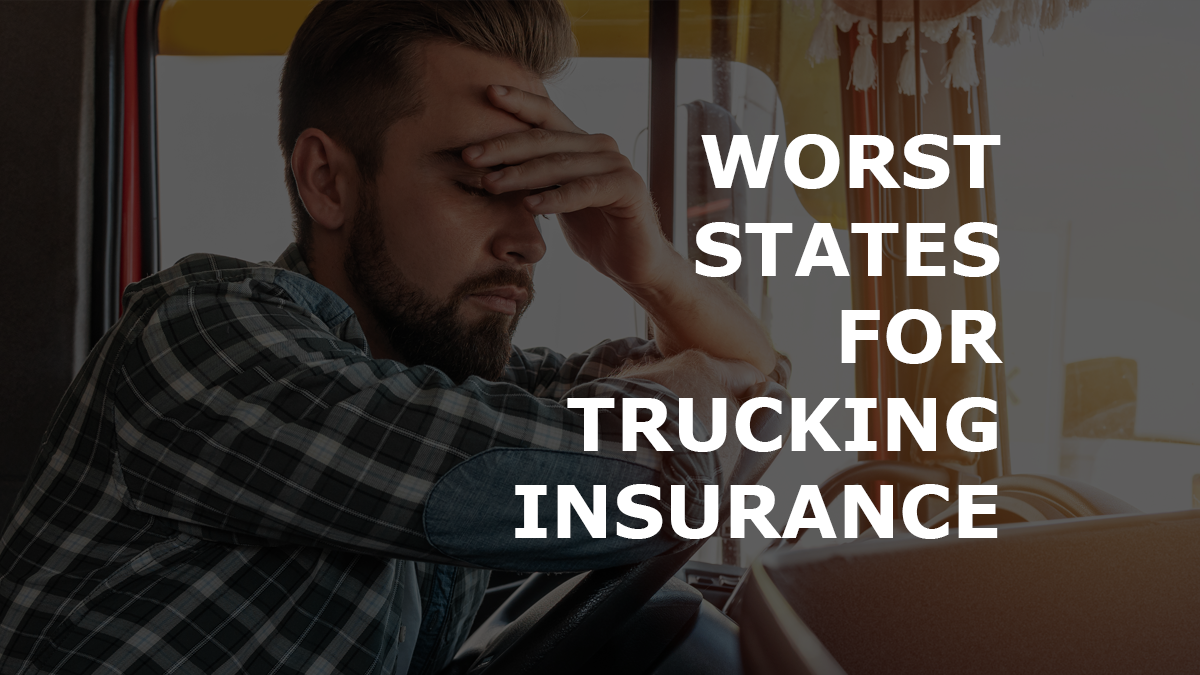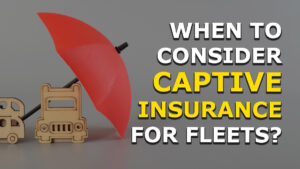When it comes to insurance, location is critical and reducing insurance costs requires looking at your operation the way an underwriter does.
So, what do underwriters see as the worst states for commercial trucking insurance?
As of right now:
- California
- Ohio
- New Jersey
- New York
Let’s find out why!
California:
We all recognize that California is basically their own country when it comes to rules and regulations.
While some can argue that these rules combat climate change, negative hiring or job practices, and more with CARB, AB5 independent contractor rule, or anti-idling restrictions, we do know that these rules restrict companies from wanting to drive in the state.
And this includes Commercial Truck Insurance.
According to a recent TRIP report, California tops the list of congested urban interstates and holds the highest ranking for the most daily interstate travel per lane mile.
Why? Because the state has more residents than all of Canada with way more traffic jams, which means a lot more vehicle accidents and increasing accident rates.
This is causing some insurance companies to pay out more in claims than they are taking in.
When companies are not making money, they either have to pull out of the state or dramatically increase insurance rates.
However, for non-commercial auto insurance, California is a very consumer-friendly state and insurers must have any rate hike approved first.
To get around this, Progressive is requiring a minimum down payment of 50% for new entrant carriers in their California Commercial Auto, Business Auto, and Contractor programs.
It doesn’t help when non-commercial auto insurance companies, State Farm, AllState, and Farmer’s, are asking the California Department of Insurance for a nearly 7% premium increase, while Progressive is asking for more than 19%. Geico has closed all its California offices and Progressive stopped advertising in the state.
Want CNS to offer you an insurance quote in the state? Unfortunately, we can’t. We do not write in California because we would be required to have a physical office in the state.
Ohio:
We could go on and on about California, but let’s move on to Ohio, the next state on our list.
In a 2020 study, researchers found that the top five states in restrictiveness are California, New York, Ohio, Illinois, and Texas.
On top of this, Ohio constantly ranks among the highest in trucking vehicle violations for light issues and maintenance issues.
The study also found that the most regulated industry was “insurance carriers” with Ohio being the state that regulates them the most.
One example of this is vicarious liability. When a truck driver acts negligently and injures someone in Ohio, the victim could hold their employer vicariously liable for any injuries that occur.
As a result, an accident victim’s lawyer may build a case against a large corporation (not an individual) and attempt to recover compensation from them in these claims.
Ohio law requires all businesses with employees to carry workers’ compensation insurance. While many states require this, Ohio has a unique law prohibiting businesses from purchasing coverage through private insurance carriers.
Lastly, when it comes to traffic and congestion, Ohio has three major cities (Cincinnati, Cleveland and Columbus), which increased rates around these metro areas.
New Jersey:
New Jersey constantly gets a bad rap, especially by their bigger neighboring state.
Unfortunately, it is the same for trucking insurance.
Underwriters want less congested states, safer roads, and ultimately less claims.
However, New Jersey ranks among the top five states with:
- the worst-paved highways
- the worst traffic
- the worst truck parking problems,
- and more
It also doesn’t help that it is a smaller state surrounded by megacities in Philadelphia and New York with poor bridges and roads.
Workers’ compensation is the only type of business insurance required by New Jersey state law.
New York:
While the younger sibling has issues, the older brother fares no better.
The state also ranks in the top five for states with:
- the worst-paved highways
- the worst traffic
- the worst truck parking problems,
- and more
Which means, like California, Progressive requires a minimum down payment of 50% for new entrant carriers in their New York Commercial Auto, Business Auto and Contractor programs.
Then, for fleets not held by FMCSA regulations, New York’s state minimum liability limit follows the 25/50/10 rule.
This means the dollar amounts payable by your insurer for bodily injury and property damage and split into three groups where your policy will pay up to:
- $25,000 for each person injured in an accident
- $50,000 for all people injured in an accident
- $10,000 for all property damaged in an accident
New York is also a “no-fault” state where people can only sue an at-fault driver for injuries after the coverage provided by Personal Injury Protection (PIP) has been exhausted.
Lastly, New York requires all commercial vehicles to have uninsured motorist (UM) coverage. This insurance helps pay for the medical expenses that result from injuries caused by an uninsured driver or a hit-and-run situation.
How can you find the best commercial truck insurance rates?
Allow a CNS Insurance Commercial Trucking Insurance Specialist pull multiple insurance quotes for you to find the best rates.
It never hurts to get a quote and try saving money on your insurance premiums.
Give us a call anytime and we can discuss lowering your premiums or getting a quote to see where you stand.
Before we can get you an estimate, we are going to need some information.
Fill out a complete quote or quick quote to get started.
If you have any questions or concerns, please call us at 800.724.5523 or email info@cnsinsures.com.






